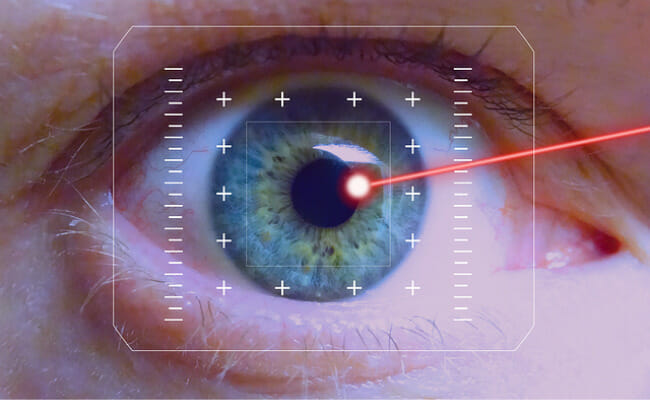Laser Eye Surgery: Fully Explained
You can say goodbye to your eyeglasses and contact lenses by undergoing surgery. It is common worldwide, so why shouldn’t you try this option?
It takes roughly half an hour, and it does not cause pain. However, you will need to prepare for the potential risks and the necessary care after the procedure.
This article will explain what laser eye surgery is and list the eye conditions it could treat. We will also discuss how it works and what to expect during and after the procedure.
What is LASIK Eye Surgery?

Photo Credit: www.forbes.com
Laser eye surgery has another name: LASIK Eye Surgery. “LASIK” stands for laser in-situ keratomileusis, the most common vision correction procedure.
It uses a special cutting laser to change the shape of your cornea. The new shape should allow light to pass through that eye tissue properly. As a result, your eye vision may improve.
Why do people get Laser Eye Surgery?
A successful LASIK procedure may restore a person’s vision, so they will no longer need glasses or contact lenses. It could solve the following eye problems:
Nearsightedness
Your eyeball is slightly longer than average. Alternatively, your cornea might curve too sharply, causing light to focus in front of your retina and blur distant vision. As a result, far away objects appear blurry.
Farsightedness
Your eyeball is shorter than average, or your cornea is too flat, causing light to focus behind the retina. Consequently, nearby objects seem blurred.
Astigmatism
Your cornea flattens or curves unevenly, distorting the focus of near and distant vision. As a result, you may often experience eyestrain and headaches. Also, you may need to squint to see clearly.
Who can get Laser Eye Surgery?

Photo Credit: assileye.com
You must consult your doctor before you may undergo this procedure. Your physician may allow you if you are 18 years old. However, some doctors require you to be at least 21 or older.
Your physician will check for corneas if it is thick and has no scratches. Also, you should not have changed your eye prescription in the past year. The National Eye Institute says it will only succeed if the patient’s vision is stable.
Who may not get Laser Eye Surgery?
You may not undergo this procedure if they have the following conditions:
- Extreme nearsightedness, shortsightedness, and astigmatism
- Past eye infections
- Severe dry eye
- Advanced Glaucoma
- Cataracts
- Diabetes
- Rheumatoid arthritis
- Crohn’s disease
- Keratoconus
- Weak immune system
- Vision problems due to medications
How to prepare
You will need to talk to an eye surgeon regarding laser eye surgery. The expert will require your medical history and perform an eye exam. Ask everything you want to know about the procedure, and the doctor will answer.
You may return to your normal activities a day after the procedure. However, depending on your eyes, you might need to take a more extended break. The process is painless, but you may feel the medicines you took before surgery.
Also, you might not be able to see clearly after the laser eye surgery. Consequently, you should ask someone to drive you to and from the clinic. You might need to return for additional checkups, so plan for those.
You must not wear your contact lenses at least three weeks before your assessment. Moreover, before your surgery day, you should avoid wearing eye makeup, lotions, perfumes, and creams.
The American Refractive Surgery Council says the average cost of laser eye surgery is $4,400. On average. You should check if your insurance could cover some or all of the expenses.
Laser Eye Surgery process

Photo Credit: www.eyemichigan.com
The procedure starts with you lying on a reclining chair. Then, your eye surgeon will give you medicine to help you relax. Next, the doctor will apply numbing drops to your eyes.
Rest assured that you will not feel pain, but you might feel pressure during laser eye surgery. Patients say that it feels like a finger pressing against your eyelid.
Afterward, the doctor will place a suction ring and eyelid holder on your eye. The ring will keep your eye steady, while the latter will prevent you from blinking. Expect your vision to dim or turn completely black.
The doctor will prepare a laser adjusted to your eye measurements. Afterward, the expert will cut a paper-thin flap in your cornea. The physician will lift the flap as if turning a book page.
Your doctor will ask you to stare at a light shining in your eye. This action will keep your eye from moving. Next, the surgeon will use the laser to reshape your cornea.
Expect the laser to make ticking or clicking sounds. Also, you might smell the scent of burnt hair. Lastly, the surgeon will fold the flap back into place. It will start to heal within two to three minutes.
It is fine to feel uneasy after reading the steps of laser eye surgery. Nobody likes to think of a laser shining on their eye. However, LASIK is a guaranteed safe procedure with a low risk for side effects.
Aftercare
The Food And Drug Administration says that a patient may feel irritation in their eyes after the procedure. In other words, you might feel an itch or a burn. Some may feel like something is inside their eyes.
Also, you may experience light sensitivity, excessive glare, or bloodshot eyes. However, these symptoms usually go away after a few days. Do not rub your eyes after laser eye surgery.
Otherwise, you could damage your eyes and require more surgery. Also, you should take the antibiotics and eye drops prescribed by the surgeon. You might have to wear an eye shield to keep you from touching your eyes while sleeping.
You will attend a follow-up appointment one or two days after surgery. The doctor will check how your eyes heal and look for any problems. Moreover, you may need to wait several weeks to resume physical activities.
Depending on the side effects, you may need to wait a few days before you can return to school or work. For example, you cannot work or study for a short period if your eyes are blurry.
Contact your doctor immediately if you feel severe pain or if your side effects worsen. Those symptoms might be signs of problems that you must resolve as soon as possible.
Potential risks

Photo Credit: www.bettervisionguide.com
The FDA approved LASIK surgery in 1998 and found that more than 95% of patients were satisfied with its results. Still, some people may report unintended effects.
For example, you may feel that your eyes are unusually dry. The eye drops from your doctor should resolve the problem. Also, some may report visual patterns like halos or glare. This symptom often disappears within a few days or several months.
You might see double after laser eye surgery. Moreover, you may struggle to see in dim light. However, some patients may experience more severe symptoms.
For example, the surgeon might remove too little or too much tissue from your cornea. You may need another laser eye surgery to remove the tissue if it is the former. Otherwise, you will have a more challenging time fixing your eyes.
As mentioned, the surgeon cuts a flap into your eye during the procedure. Putting it back may cause infection and excess tears. Also, the cut layer may grow abnormally during the healing process.
Fortunately, this only happens to 0.1% to 0.4% of patients. Eye problems like nearsightedness may return after laser eye surgery. Like flap problems, this side effect is rare.
Conclusion
Laser eye surgery corrects your eyes so that you will never need contact lenses and eyeglasses again. However, you should prepare for the procedure.
Make sure someone can assist you with your appointments. Also, you should expect to take a break from work or school for a few days. You should prepare to pay at least $4,400 for the procedure.
More importantly, you should consult your doctor regarding laser eye surgery. The physician will answer all your questions about the procedure.
Frequently asked questions
How long does laser eye surgery last?
LASIK Eye Surgery often lasts for 20 to 30 minutes. Some may return to their daily activities after a day. Others may need several days to recover.
Does laser eye surgery have risks?
The procedure has a 95% success rate. However, you may encounter side effects like blurry vision. Fortunately, your surgeon will prescribe drugs to manage them.
When is it too late for LASIK?
The age requirement for laser eye surgery has no upper limit. You may undergo the procedure as long as you are 18 years old or more. However, that depends on your current condition.





